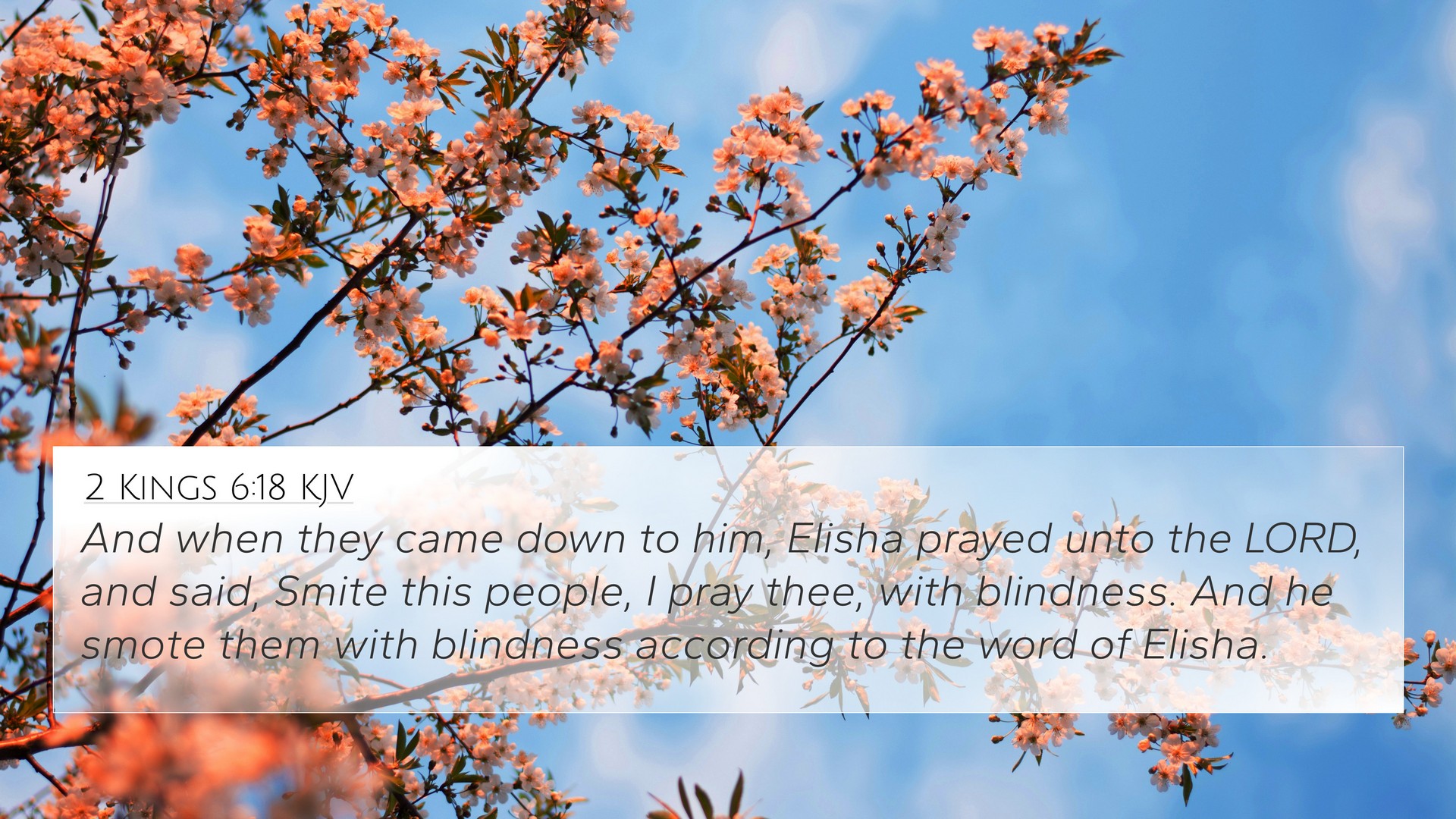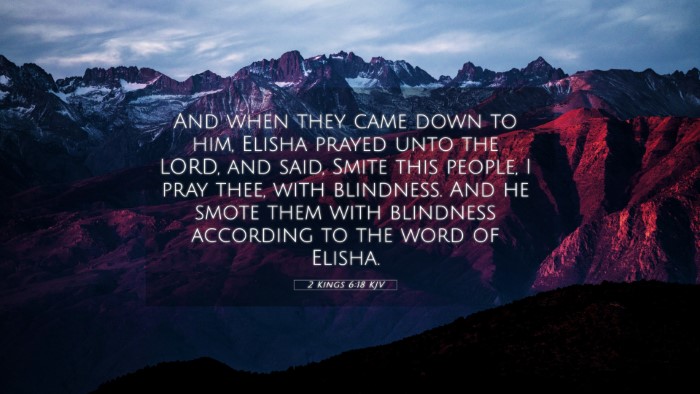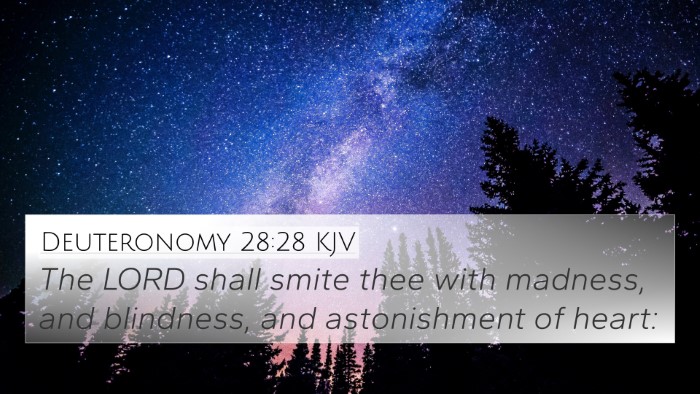Understanding 2 Kings 6:18
Bible Verse: 2 Kings 6:18 - "And when they came down to him, Elisha prayed unto the Lord, and said, Smite this people, I pray thee, with blindness. And he smote them with blindness according to the word of Elisha."
Overview
This verse depicts a moment of supernatural intervention where Elisha, a prophet of God, calls upon divine power to blind a host of enemies. The importance of prayer and God's sovereignty is emphasized throughout this passage. In examining this verse, we can gain insight into themes of faith, divine authority, and the protection God offers His people.
Commentary Insights
Matthew Henry's Commentary
Matthew Henry emphasizes that Elisha's faith in God's power was profound. He notes that despite the adverse circumstances—being surrounded by a hostile army—Elisha’s focus was on God rather than the threat. This act of blinding the enemy symbolizes God’s ability to protect and deliver His people from danger. The blindness serves not only as punishment but also as a means to show the power of God over the seemingly insurmountable challenges faced by His followers.
Albert Barnes' Commentary
Albert Barnes elucidates that Elisha's prayer to God indicates his reliance on divine assistance rather than physical warfare. The act of asking for blindness demonstrates a strategic move intended to protect Israel from attack without bloodshed. Moreover, Barnes connects this event to the larger narrative of God's faithfulness to His people, illustrating how God intervened on behalf of His servants during dire situations, reinforcing the theme of divine protection.
Adam Clarke's Commentary
Adam Clarke points out the significance of Elisha's actions as an exhibit of prophetic authority over the natural realm. Clarke also highlights the spiritual implications of the incident, considering it an illustration of God’s control over the physical and spiritual realms. Elisha prayed, and God answered, showcasing the connection between prayer and divine intervention. Clarke further notes that the incident reflects Jesus' teachings on how divine power can be transmitted through faith and prayer.
Thematic Connections
2 Kings 6:18 resonates with various themes found throughout the Bible:
- Divine Protection: God’s care over His people in times of trouble.
- Intercessory Prayer: The importance of praying for others and seeking God’s assistance.
- God's Sovereignty: A reminder that God reigns over all, including our enemies.
- Spiritual Warfare: Highlights the battle not just against flesh and blood, but against spiritual forces.
Cross References
Here are 10 Bible cross-references related to 2 Kings 6:18:
- 2 Kings 6:17: Elisha's prayer for divine sight and protection.
- Psalms 34:7: "The angel of the Lord encamps around those who fear him."
- Isaiah 54:17: "No weapon forged against you will prevail."
- Matthew 5:44: Jesus' teaching on praying for enemies.
- Luke 4:18: Jesus' mission to bring freedom to the captives.
- John 14:14: "If you ask anything in My name, I will do it."
- Romans 12:19: "Leave room for God's wrath." A reminder of God's justice.
- Ephesians 6:12: The nature of our struggle is spiritual.
- Philippians 4:6-7: The call to prayer and the assurance of God’s peace.
- 1 John 5:14-15: Confidence in approaching God in prayer.
Conclusion
The account of Elisha's prayer and the ensuing miracle serves as a profound reminder of God’s power and willingness to act on behalf of His people. Understanding this verse in the context of prayer, divine protection, and God’s sovereignty enhances our comprehension of the Biblical narrative and enriches our spiritual lives. As we engage in cross-referencing biblical texts, we discover deeper connections and themes that weave through Scripture, affirming the eternal truth of God’s faithfulness.
How to Use Cross-References
Utilizing Bible cross-references can deeply enhance your study of Scripture:
- Tools for Bible cross-referencing: Use a Bible concordance or a cross-reference guide to find related verses.
- Identify thematic connections: Look for verses that discuss similar themes to deepen your understanding.
- Engage in comparative studies: Explore how passages echo one another across both Testaments.
- Cross-reference for sermon preparation: Use connections and parallels to develop deeper messages.










